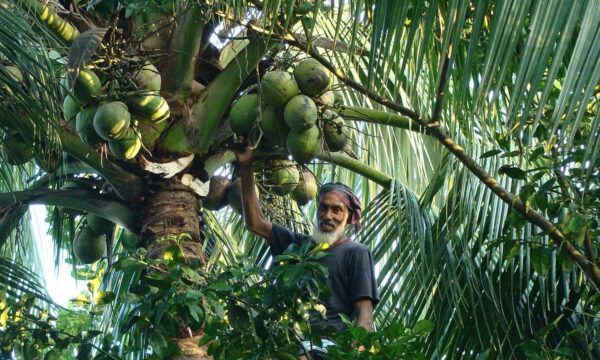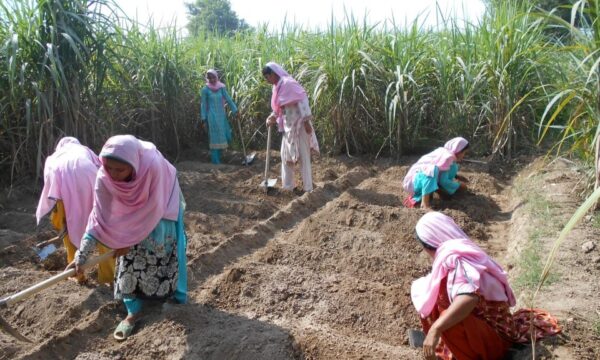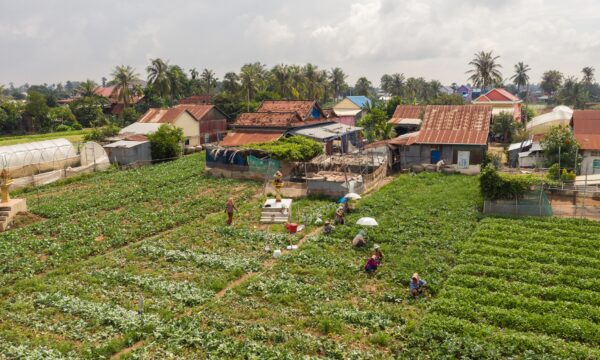This article was originally published by CHAP
As part of its International Pest Horizon Scanning (IPHS) capability, CHAP has funded the distribution of 180 tablet devices to extension workers across five countries: Ghana, Nepal, Peru, Vietnam and Malawi. These extension workers, known as plant doctors, run plant clinics under the CABI-led Plantwise programme. Plant clinics provide essential extension services to local farmers who can bring along samples of their affected crop and receive a diagnosis as well as a recommendation for managing the problem. The plant doctor records each farmer’s visit using their tablet. The process is more accurate and efficient than the previous pen and paper record-keeping.
The IPHS capability is key to ensuring the supply of healthy crops for consumption in the growers’ own countries, and for importing nations such as the UK.
Here are five ways it is helping to tackle and mitigate pest problems:
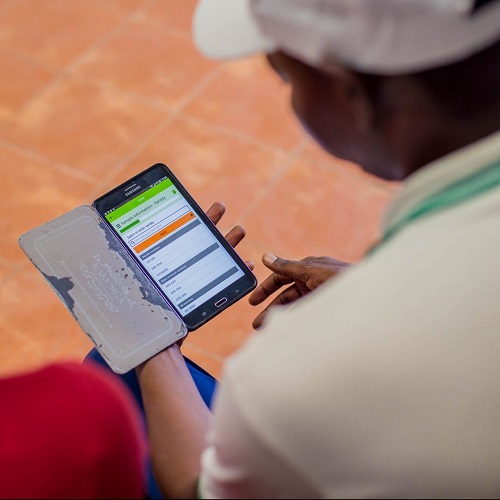
1 Data collection
Using the Plantwise Data Collection app, plant doctors are able to record pest presence, impact and management practices in the field, and send the information straight to a central repository. The app guides the plant doctor through the consultation with the farmer, supporting them to make an accurate diagnosis and give effective management advice. Where possible, the app gives the plant doctor pre-filled options to select, speeding up the process of entering data, and making sure data are as clean as possible upon submission. This in turn reduces the lag time between data being collected, and data being used by national partners to monitor pest outbreaks and identify specific farming communities that may need targeted interventions.
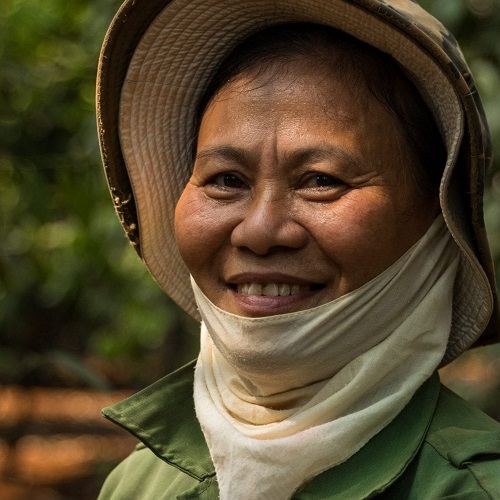
2 Knowledge sharing
The mobile technology and tools used in e-plant clinics not only help agricultural extension workers access more, but also more up-to-date information to support their services. This particularly benefits farmers who would not have had the means to access this information otherwise because of limitations in literacy, language or location. Using a range of online tools, such as the Plantwise knowledge bank, and mobile applications, such as the Plantwise Factsheet app, plant doctors can quickly and easily access a wealth of resources on the one device without needing to procure and carry around additional resources, such as textbooks. Factsheets – available in the plant doctor’s local language – provide information about crop pests and other disorders and make recommendations based on scientific evidence of efficacy. The text can be copied directly into the prescription form, and sent via SMS direct to the farmer.
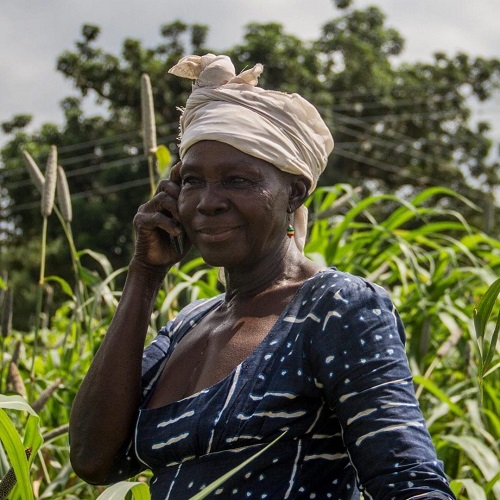
3 Improving diagnostic support capabilities
The tablets have been set up with a messaging app, allowing groups of plant doctors – who can be highly dispersed within a country – to discuss plant clinic queries, get advice on pest and disease identification and share information and expertise on integrated pest management (IPM) and crop management practices. By integrating extension channels with remote mobile capabilities, plant doctors can share their knowledge and expertise and feed that back directly to benefit farmers. In addition to this peer-to-peer support, the plant doctor groups are also linked with CABI’s Diagnostic Advisory Service (DAS) team who are able to provide support for any diagnostic queries that are escalated to them.
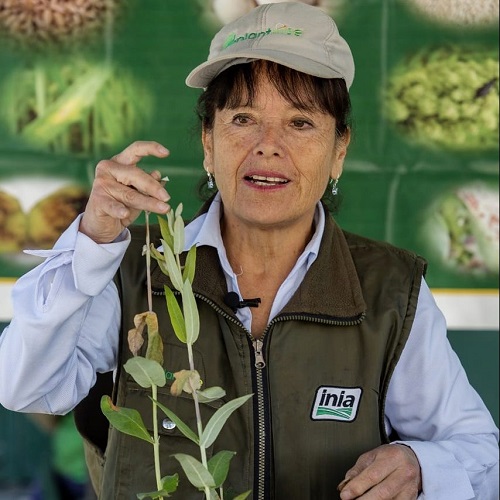
4 Capacity building and training
The tablets have opened up a new way for organisations to support extension workers, who work remotely much of the time. The technology allows training and refresher courses to be delivered on demand, without the need for a physical meeting with a trainer. CABI has developed the PestSmart Diagnostic and Crop Management simulators as engaging, interactive tools that plant doctors can use to access training to support their roles at the plant clinics. In addition, the data collected at the clinics is monitored by national partners and validated to check for confidence in diagnoses and recommendations. Where crop problems are suspected to be being misdiagnosed, or a new pest has appeared, or recommendations are not as comprehensive as desired, appropriate training can be prioritised for the plant doctors by partners. This creates a feedback loop between the plant doctors and decision makers.
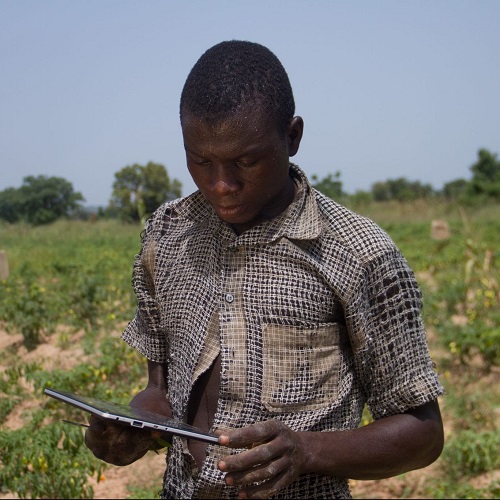
5 Innovative uses
Partners operating under the Plantwise programme are finding innovative new ways to use this technology to benefit the plant health system. Plant doctors with access to tablets have taken the communication channels available on the tablets, and developed new uses to develop their knowledge. For example, in Ghana, regular expert lectures are arranged on the messaging platform, covering topics on crop pest and disease management. This activity engages plant doctors all over the country and allows them to interact with the experts directly.
If you have any questions about International Pest Horizon Scanning or working with CHAP, please send us an email using the enquiries form at the bottom of our homepage.
This article was originally published by CHAP
All images: Copyright CABI
Related News & Blogs
Training Sri Lanka’s agro-dealers in pesticide risk reduction
Agro-dealers provide vital support to Sri Lanka’s farmers. These agricultural input suppliers are often the first point of contact for smallholders who need advice on plant protection products. However, agro-dealers often lack formal training in safer…
3 July 2025

